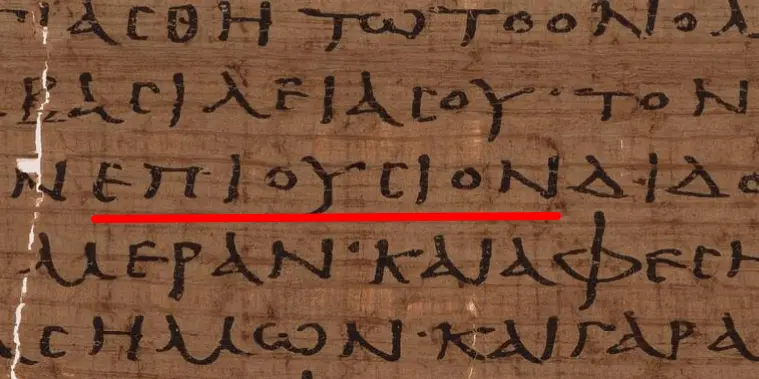TIL the adjective 'daily' in the lord's prayer is actually written in the original Greek as epiousion, which occurs nowhere else in known history
TIL the adjective 'daily' in the lord's prayer is actually written in the original Greek as epiousion, which occurs nowhere else in known history

Epiousion - Wikipedia

the full line being "Give us today our epiousion bread"
Today, most scholars reject the translation of epiousion as meaning daily. The word daily only has a weak connection to any proposed etymologies for epiousion. Moreover, all other instances of "daily" in the English New Testament translate hemera (ἡμέρα, "day"), which does not appear in this usage.[1][2] Because there are several other Greek words based on hemera that mean daily, no reason is apparent to use such an obscure word as epiousion.[4] The daily translation also makes the term redundant, with "this day" already making clear the bread is for the current day.[21]
i don't think wikipedia mentions this but it has 'pious' in the middle